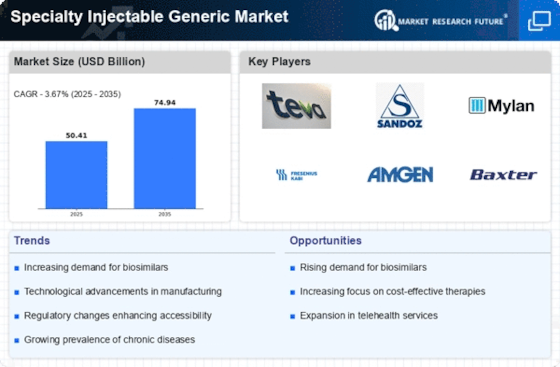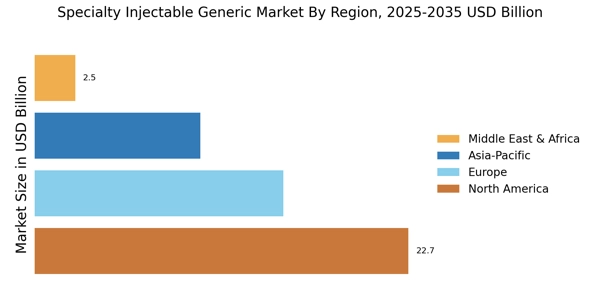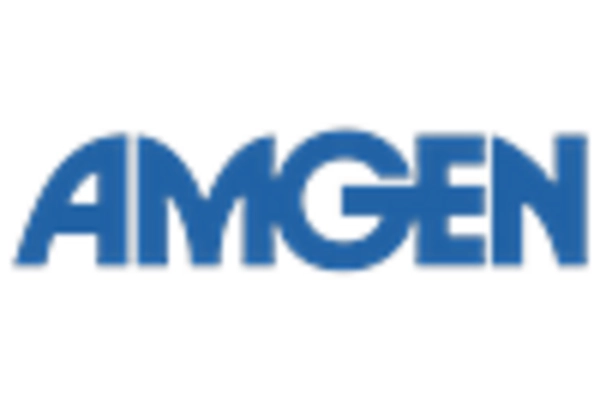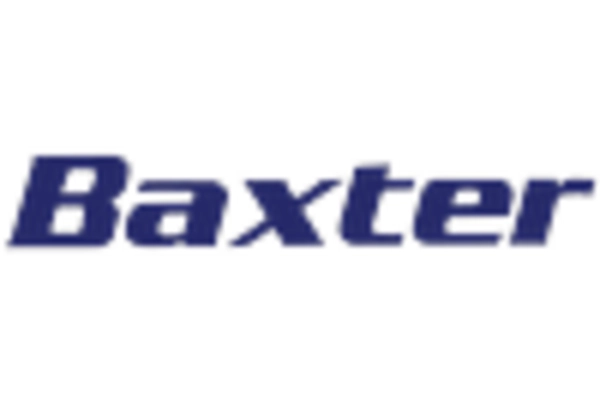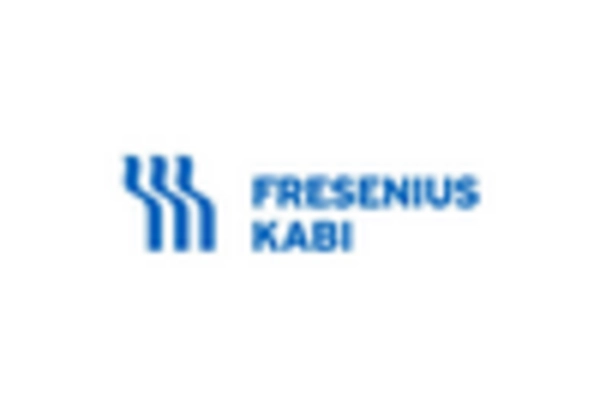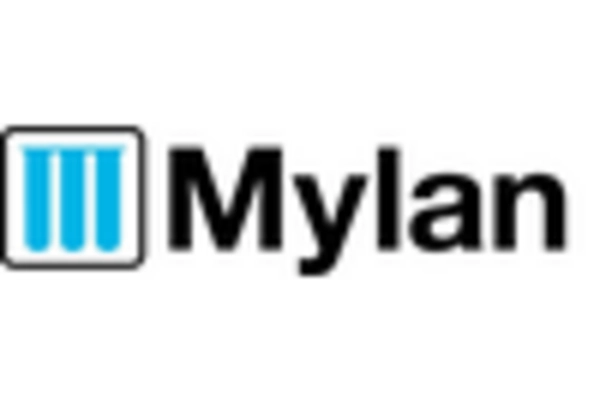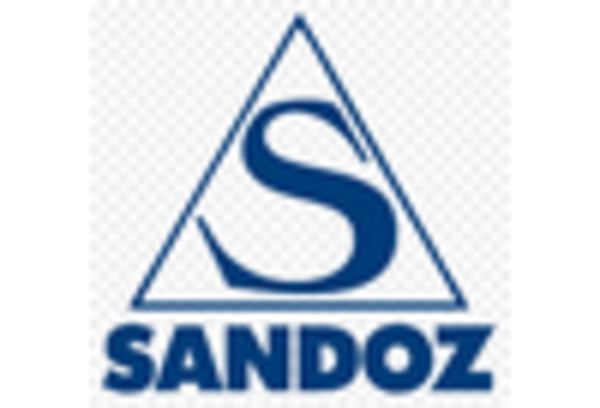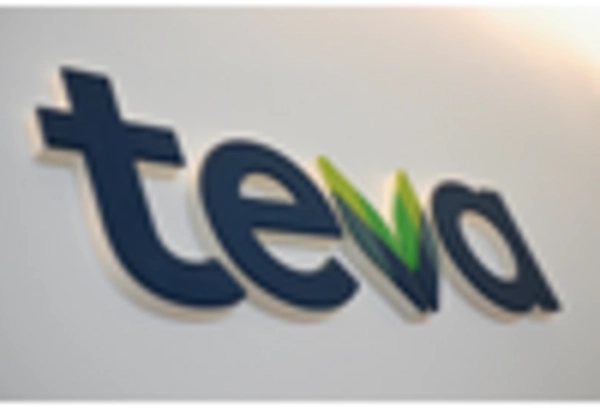Growing Focus on Biosimilars
The increasing emphasis on biosimilars is shaping the Specialty Injectable Generic Market. As patents for biologic drugs expire, the market for biosimilars is expanding, providing a new avenue for specialty injectables. Biosimilars offer similar efficacy and safety profiles to their branded counterparts, often at a lower cost. This trend is particularly relevant in the context of specialty injectables, where the demand for affordable treatment options is high. The Specialty Injectable Generic Market is likely to benefit from the growing acceptance of biosimilars among healthcare providers and patients. As more biosimilars enter the market, they may drive competition, leading to further price reductions and increased accessibility to essential therapies.
Rising Healthcare Expenditure
Healthcare expenditure continues to rise across various regions, driven by an aging population and increasing healthcare needs. This trend is particularly relevant to the Specialty Injectable Generic Market, as higher spending often correlates with increased demand for advanced medical treatments. In many countries, healthcare spending is projected to reach unprecedented levels, with a significant portion allocated to pharmaceuticals. As healthcare systems seek to manage costs while providing effective treatments, the adoption of specialty injectable generics is likely to increase. These generics offer a more affordable alternative to branded injectables, making them an attractive option for healthcare providers and patients alike. The Specialty Injectable Generic Market stands to gain from this trend, as it aligns with the broader goals of cost containment and improved patient access to essential medications.
Regulatory Support for Generic Drugs
Regulatory bodies are increasingly supporting the development and approval of generic drugs, including specialty injectables. Initiatives aimed at expediting the approval process for generics are becoming more prevalent, which is likely to bolster the Specialty Injectable Generic Market. For instance, the introduction of the 505(b)(2) application pathway allows for a more streamlined approval process for certain injectable generics. This regulatory environment encourages pharmaceutical companies to invest in the development of specialty injectables, as it reduces the time and cost associated with bringing these products to market. Consequently, the Specialty Injectable Generic Market is poised for growth as more companies enter the space, providing a wider array of treatment options for patients.
Advancements in Drug Delivery Systems
Innovations in drug delivery systems are transforming the landscape of the Specialty Injectable Generic Market. New technologies, such as microneedles and smart injectors, enhance the efficacy and convenience of injectable medications. These advancements not only improve patient compliance but also expand the potential applications of specialty injectables. As drug delivery systems evolve, the Specialty Injectable Generic Market is likely to see an influx of new products that cater to diverse patient needs. Furthermore, these innovations may facilitate the development of combination therapies, which could enhance treatment outcomes for chronic conditions. The integration of advanced delivery mechanisms into specialty injectables represents a significant opportunity for growth within the market.
Increasing Prevalence of Chronic Diseases
The rising incidence of chronic diseases such as diabetes, cancer, and autoimmune disorders is a primary driver for the Specialty Injectable Generic Market. As these conditions require long-term treatment, the demand for injectable medications is expected to surge. According to recent data, chronic diseases account for approximately 70% of all deaths, highlighting the urgent need for effective therapies. Specialty injectables, often used in the management of these diseases, are becoming increasingly essential. The Specialty Injectable Generic Market is likely to benefit from this trend, as healthcare providers seek cost-effective alternatives to branded injectables, which can be prohibitively expensive. This shift towards generics not only alleviates financial burdens on patients but also enhances accessibility to necessary treatments, thereby fostering market growth.


